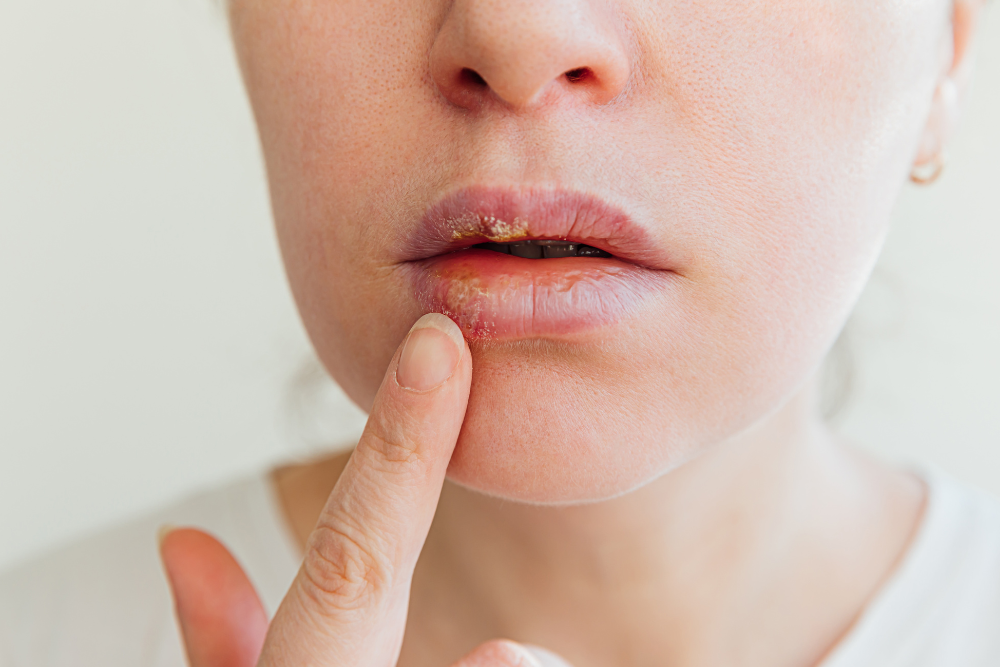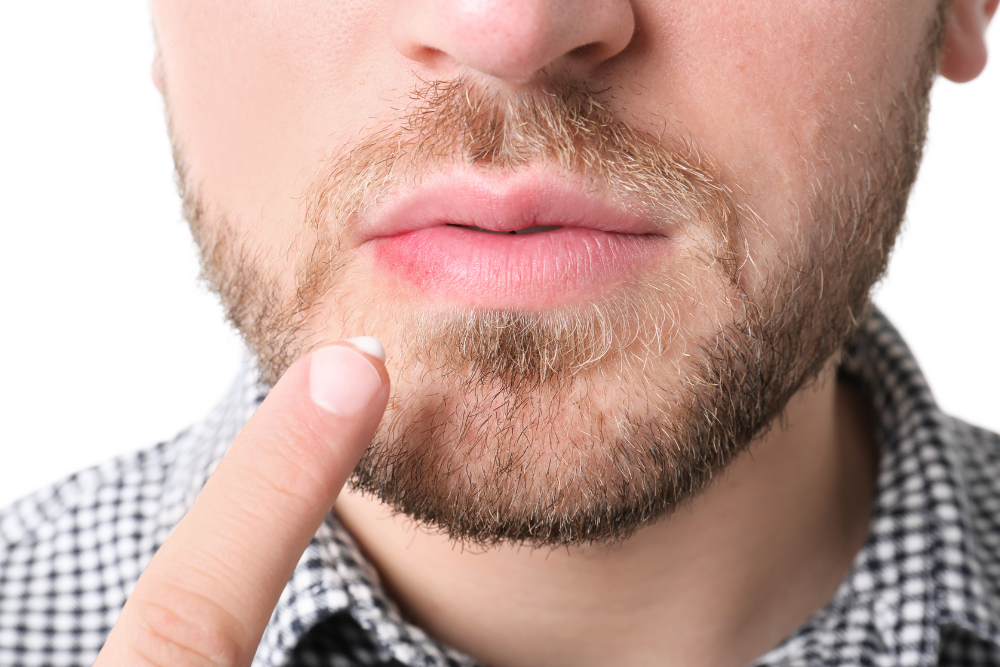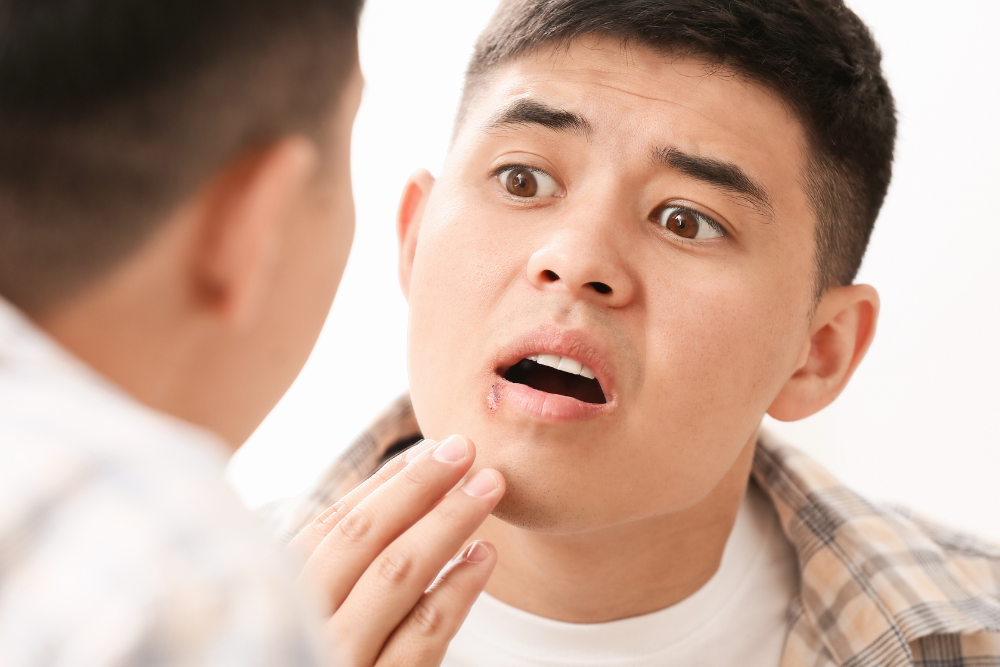Herpes, a common viral infection caused by the herpes simplex virus (HSV), often elicits concern and questions among those affected. One of the most pressing questions is: “How long does a herpes outbreak last?” Understanding the nature and timeline of herpes outbreaks is essential for those living with the virus and individuals looking to educate themselves about this condition.
In this article, we delve into the specifics of herpes outbreaks, distinguishing between HSV-1 and HSV-2, the viruses responsible for oral and genital herpes. We explore the duration of primary and recurrent outbreaks, herpes symptoms, and how factors like individual immune responses and lifestyle choices can influence the length and severity of herpes outbreaks.
Understanding Herpes Outbreak Duration
Herpes outbreaks can vary in duration depending on several factors. Typically, an initial outbreak may last longer than a recurrent one. Here’s a general outline of the timeline for a herpes outbreak:
Initial Outbreak
The first outbreak after exposure to the virus can be severe and longer-lasting, often spanning 2 to 4 weeks. It usually begins with itching or tingling, followed by the appearance of sores.
Recurrent Herpes Outbreaks
These are generally less severe and may last about one week or less. Some people may experience a warning sign (like tingling or itching) before sores appear.
Healing Phase
After the outbreak, the sores will gradually heal and crust over, eventually disappearing.
Several factors can influence the duration and frequency of herpes outbreaks, including the immune system’s strength, stress levels, and whether antiviral medication is used. Antiviral medications can help to reduce the severity and duration of outbreaks, especially when taken at the first sign of an outbreak.
Remember, while herpes is a chronic condition, many people live with it successfully by managing symptoms and taking precautions to prevent transmission. Regular consultation with a healthcare provider is essential for effective management.

Factors Influencing Outbreak Length
The length of a herpes outbreak can be influenced by various factors, which include:
Type of Herpes Virus
There are two types of herpes simplex viruses – herpes simplex virus type 1 (HSV-1) and herpes simplex virus type 2 (HSV-2). HSV-1, often associated with oral herpes (cold sores), generally causes less frequent and milder genital outbreaks compared to HSV-2, which is more commonly associated with genital herpes sores.
Immune System Function
A strong immune system can help control the virus, potentially leading to shorter and less severe outbreaks. Conversely, a weakened immune system can lead to longer and more frequent outbreaks, whether due to stress, illness, or immunosuppressive conditions. Learn ways to boost your immune system.
Initial Outbreak vs. Recurrent Outbreaks
The initial outbreak is usually the most severe and longest in duration. Subsequent outbreaks tend to be milder and shorter.
Antiviral Medication
The use of antiviral medication can help reduce the duration and severity of outbreaks, especially if taken at the first sign of an outbreak. Get herpes treatments online with hub.health.
Trigger Factors
Certain triggers can provoke outbreaks, leading to variations in their duration. These triggers include stress, illness, fatigue, exposure to sunlight (for oral herpes), hormonal changes like menstruation, and physical trauma to the affected area.
Lifestyle Factors
General health and lifestyle choices can influence outbreak length. A healthy diet, regular exercise, and stress management can bolster the immune system and potentially reduce the severity and duration of outbreaks.
Genetic Factors
Some individuals may be genetically predisposed to experience more frequent or severe outbreaks.
Time Since Infection
Over time, the frequency and severity of outbreaks typically decrease. This is partly due to the body’s development of immune responses to the virus.
It’s important to note that these factors can vary greatly among individuals, and not everyone will experience the same patterns with their herpes outbreaks. Regular medical consultation and personalised treatment plans are vital in managing herpes effectively.
Managing and Shortening Outbreaks
Managing and potentially shortening the duration of herpes outbreaks involves a combination of medication, lifestyle changes, and self-care practices. Here are some strategies:
Antiviral Medications: Antiviral drugs are effective in treating herpes outbreaks. They work best when taken at the first sign of an outbreak, such as tingling, itching, or pain in the affected area. For those with frequent outbreaks, daily suppressive therapy can be prescribed to reduce the frequency and severity of episodes.
Topical Treatments: Over-the-counter creams and ointments can relieve itching and discomfort, although they may not significantly shorten the outbreak duration.
Pain Relief: Over-the-counter pain relievers can help manage pain and inflammation associated with herpes sores.
Keep the Affected Area Clean and Dry: Gently washing the affected area with mild soap and water can help prevent additional infection and promote healing. Keeping the area dry helps prevent the sores from becoming more irritated.
Avoid Irritating the Sores: Wear loose-fitting, breathable clothing to avoid irritating genital sores. Avoid tight clothing and synthetic materials that don’t breathe.
Stress Management: Since stress can trigger outbreaks, techniques like meditation, yoga, regular exercise, and adequate sleep can help manage stress levels. Find out how to get a better night’s sleep.
Healthy Lifestyle: A healthy diet, regular exercise, and adequate rest can strengthen the immune system, potentially reducing the frequency and severity of outbreaks.
Avoid Known Triggers: For some people, triggers like sunlight exposure (for oral herpes) or friction during sexual activity can prompt outbreaks. Using lip balm with sunscreen and lubricants during sex can help.
Stay Hydrated: Drinking plenty of fluids can dilute urine, reducing pain when urinating over sores, particularly for genital herpes.
Avoid Touching the Sores: Touching the sores and then another part of the body, like the eyes, can spread the infection. Wash hands thoroughly after any contact with the sores.
Remember, while these methods can help manage and potentially shorten outbreaks, they may not work the same for everyone. Working with a healthcare provider to develop a personalised treatment plan is important.

Tips for Faster Herpes Outbreak Recovery
Here are five quick tips for faster recovery from a herpes outbreak:
Start Antiviral Treatment Early: Begin taking prescribed antiviral medication as soon as you notice signs of an outbreak. Early intervention can shorten the duration and reduce the severity of herpes outbreak symptoms.
Maintain Good Hygiene: Keep the affected area clean and dry. Gently wash with soap and water and avoid applying any irritants or harsh substances.
Apply Cold Compresses: To alleviate pain and swelling, apply a cold compress or an ice pack wrapped in a cloth to the affected area. Do not apply ice directly to the skin.
Avoid Touching the Sores: Minimise touching the sores to prevent spreading the virus to other parts of your body or other people. Wash your hands thoroughly if you touch the sores.
Stay Comfortable: Wear loose, breathable clothing to prevent additional irritation to the sores, especially for genital outbreaks.
These tips can help in a more comfortable and quicker recovery, but following medical advice tailored to your specific situation is essential.
Extending Outbreak Relief: Prevention Measures
Extending relief from herpes outbreaks involves adopting proactive prevention measures. Key strategies include:
Daily Antiviral Therapy: For those with frequent or severe outbreaks, daily suppressive antiviral medication can significantly reduce the frequency of outbreaks and the risk of transmitting the virus to others.
Stress Management: Stress is a known trigger for herpes outbreaks. Engaging in stress-reduction activities like yoga, meditation, regular exercise, and ensuring adequate rest can help keep the immune system strong and reduce the likelihood of outbreaks.
Healthy Lifestyle: A balanced diet rich in vitamins and minerals, regular physical activity, and sufficient sleep bolster the immune system. Avoiding smoking and excessive alcohol consumption can also be beneficial.
Avoiding Known Triggers: Sunlight exposure can trigger oral herpes outbreaks, so using lip balm with SPF and wearing a hat can be protective. For genital herpes, avoiding friction and irritation during sexual activity by using lubricants can help.
Safe Sexual Practices: Using condoms and dental dams can reduce the risk of spreading herpes to sexual partners. It’s important to avoid sexual contact during outbreaks to minimise the risk of transmission further.
By combining these preventive measures with regular medical consultation, individuals can effectively manage herpes and reduce the frequency and severity of outbreaks, thus extending the periods of relief and improving quality of life.
Seeking Medical Help for Prolonged Outbreaks
If you’re experiencing a herpes outbreak that’s longer or more severe than usual, it’s essential to consult a healthcare provider. Prolonged outbreaks can indicate a weakened immune system or a need for treatment adjustment. Severe symptoms, frequent recurrences, signs of secondary infection, or outbreaks during pregnancy require professional medical attention.
A healthcare professional can provide a proper diagnosis, optimise treatment plans, and advise on symptom management and preventive strategies. Regular medical consultation is vital for effective herpes management and overall well-being.
Manage herpes outbreaks with treatments online with hub.health. Start your consultation now!
Source
- Department of Health. Herpes simplex infections [Internet]. Melbourne (Australia): State Government of Victoria; 2021 [cited 2024 Jun 14]. Available from: https://www.health.vic.gov.au/infectious-diseases/herpes-simplex-infections#incubation-period-of-herpes-simplex-viruses




